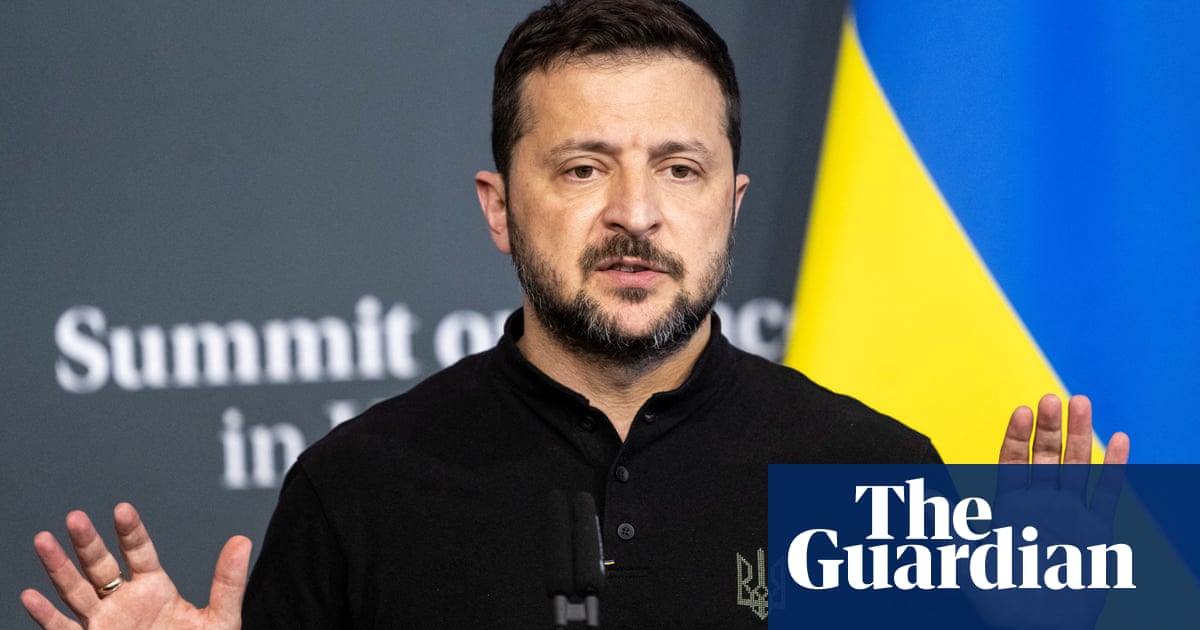Key regional powers including Brazil, India, South Africa and Saudi Arabia have failed to sign up to a joint communique issued at the end of a Ukraine peace conference in which more than 80 countries and international organisations endorsed its territorial integrity in the face of Russia’s invasion.
Speaking at the end of the two-day summit in Switzerland, Ukraine’s president, Volodymyr Zelenskiy, welcomed the “first steps toward peace” but acknowledged that not all attenders had come onboard. “Unfortunately there are people who are still balancing,” he said, adding that Russia was trying to divide the world.
He said the final communique remained “open for accession by everyone who respects the UN charter”.
About 100 countries took part in the conference in the resort of Bürgenstock, but Russia was not invited and China snubbed the event. Amid modest expectations ahead of the event, western diplomats argued that its significance lay partly in its participants. Attenders were mostly from Europe, the US and other western allies, but included countries from Latin America, the Middle East, Africa and Asia.
Zelenskiy said parties had agreed to work in special groups on “action plans for peace”, which he said would open the way to a second peace summit.
The final text was signed by more than 80 countries and international organisations, including the three main EU institutions and 27 EU member states. It said the UN charter, the territorial integrity and sovereignty of all states “can and will serve as a basis in achieving a comprehensive, just and lasting peace in Ukraine”.
In a boost for Kyiv, Turkey, which maintains close trading links with Russia and has sought to be a peacemaker, signed the document. It was also signed by Argentina, Iraq, Qatar and Rwanda.
Saudi Arabia, India, South Africa, Thailand, Indonesia, Mexico and the United Arab Emirates, however, took part in the summit, but did not sign the final communique. Brazil attended with “observer status” and did not endorse the text.
The head of the European Commission, Ursula von der Leyen, said it would take time to achieve peace in Ukraine. “[The Swiss summit] was not a peace negotiation because Putin is not serious about ending the war, he’s insisting on capitulation, he’s insisting on ceding Ukrainian territory – even territory that today is not occupied.”
Before the gathering, Russia’s president, Vladimir Putin, demanded that Ukrainian troops leave four eastern Ukrainian regions that are partially occupied by his troops. In another diplomatic non-starter for Kyiv, Putin also called on Ukraine to abandon plans to join Nato.
China decided not to send an envoy to the summit, despite Ukraine’s invitation. Asked about Beijing’s position on the war, Zelenskiy said: “China is a very serious, serious state, [and] serious economy that has political and economic influence on Russia. China truly has influence and I believe that China could help us.”
He added: “I believe that friends are those who are helping when it is difficult. I would want China to be a friend for Ukraine.”
Signatories to the communique stated that threats or use of nuclear weapons was “inadmissible”, after repeated nuclear sabre-rattling by Putin, as well as attacks on the Zaporizhzhia nuclear energy plant, which was captured by Russia early in the war and sits on the frontline. It called for attacks to cease on Ukrainian civilian ports and on merchant ships, saying food security “must not be weaponised in any way”. And it called for the release of all prisoners of war and the return of unlawfully detained Ukrainian civilians, including children.
In line with the summit’s modest aims, there was no discussion of what a postwar settlement would look like or Ukraine’s hopes of joining Nato. Viola Amherd, the Swiss president, who hosted the event, said the fact that the “great majority” of participants agreed to the final document “shows what diplomacy can achieve”.
Speaking to reporters, Zelenskiy suggested the military situation had “stabilised” in Kharkiv, the north-eastern region subject to fierce bombardment from advancing Russian forces. “Our task for today is not to give Russia successes in their offensive operations in Kharkiv,” Zelenskiy said. “The situation is better, it has stabilised and I believe that in the near future, thanks to our partners there will be strengthening of our warriors.”
Asked whether western military aid was sufficient, Zelenskiy said: “There is aid. There are serious packages. Is it enough to win? No. Is it late? Yes. Will there be strengthening of these packages? We are working on this. We are working on a daily basis.”

